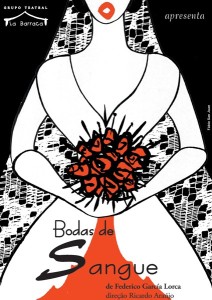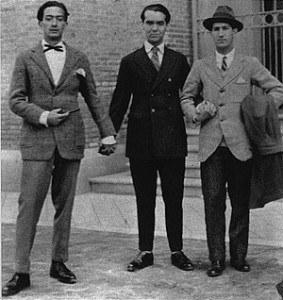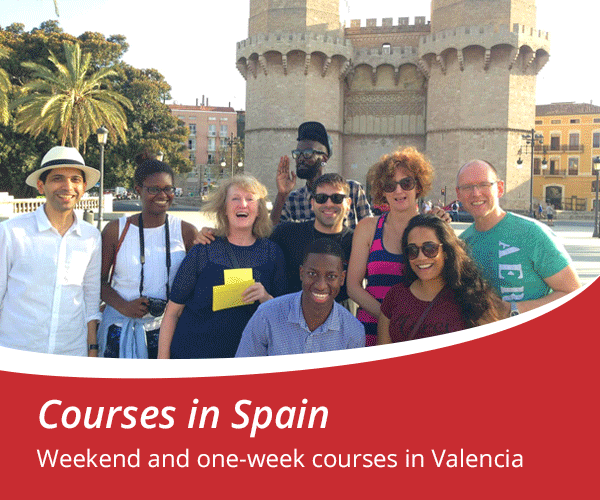Blood Wedding
The cold of the winter has arrived, and at this temperature, there is nothing better than to go to the movies or the theatre. And for Spanish students interested in Hispanic culture this month have the opportunity to see a play by one of the great writers of Spain, Federico García Lorca.
Lorca was the great Spanish poet of the 20th century, and one of the best playwrights, along with Valle-Inclán. He was born in 1898 in Fuente Vaqueros, Granada, where you can visit the house he lived and wrote in today. He died at the age of 38 at the beginning of the Spanish Civil War. He was shot on a road in Granada accused of being a socialist, a spy for the Russians and for being homosexual.
Federico’s mother was a teacher, and she was his greatest influence. Lorca once said: “my childhood is to learn letters and music with my mother, to whom I owe everything that I am and I will be.” He played piano and studied Philosophy, Literature and Law. In 1928 founded a magazine, and in 1931, he crossed the country with a university theatre group.
During his youth, he lived in the Student Residence for Liberal Arts in Madrid where he met prominent figures of literature and art, but he had a special friendship with the painter Salvador Dalí and the film director Luis Buñuel. In that atmosphere of cultural boom, the magnetism of Federico García Lorca’s personality would soon shine, whose kindness and vitality covered an intimate discomfort that only his work would reveal.
This discomfort is shown in his theatre plays, writing several tragedies about women and the rural world, such as “Yerma” or “Bernarda Alba’s house”, but his most famous tragedy is “Blood Wedding”, a work that the Cervantes Theatre Company is performing now in London. It is a must see, plus one of Vamos’ teachers is in the Spanish version!
Blood Wedding speaks of an Andalusian village, a wedding and two families fighting each other. It tells the tragic story of a love triangle between a groom, his bride and her former boyfriend. In this work, Lorca portrays the tragic sense of life, death, passion and jealousy through omens and signs, very much in the style of Greek tragedy.
This play that has been widely represented internationally, has also been taken to the cinema several times. The last adaptation of this tragic love triangle was made last year in a film titled “The Bride”, a visual spectacle that involves the viewers in that fantastic atmosphere full of prophetic and dreamlike visions, and ghosts.

Click here to view the Cervantes Theatre production page.
Vamos Let's Learn Spanish. Spanish courses in London. Spanish courses in Valencia.









